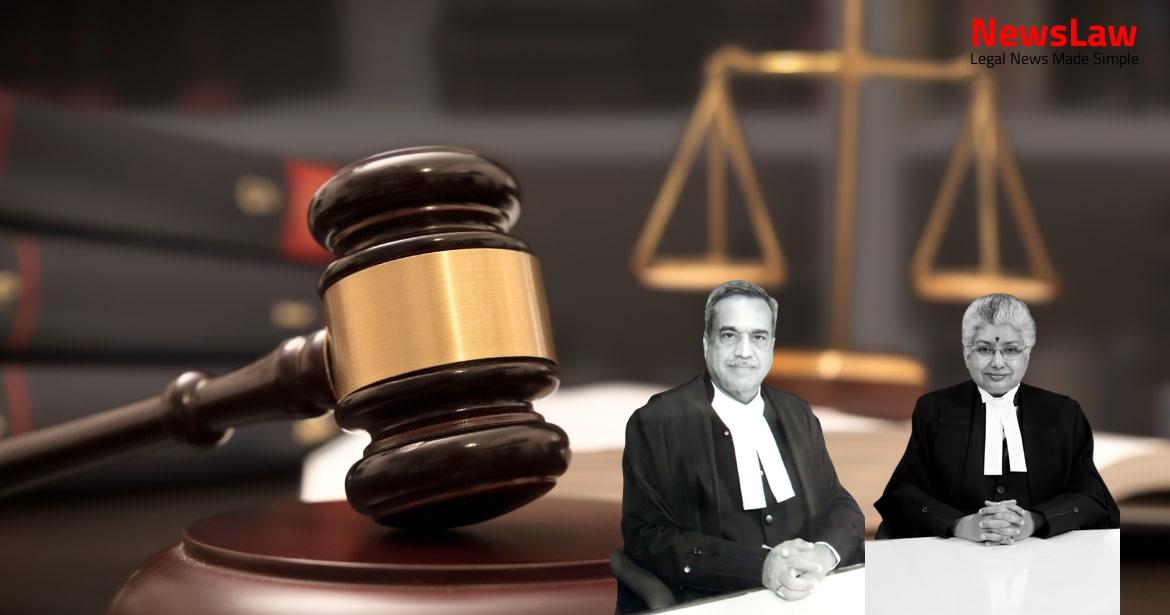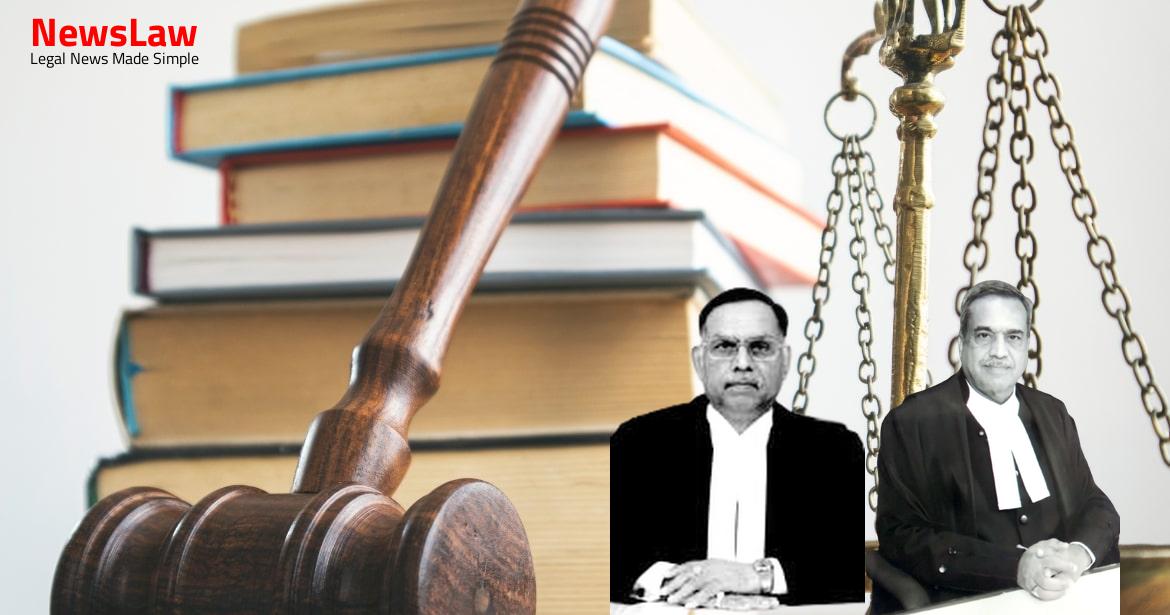In a recent case involving allegations of organized crime, the court’s decision to grant bail has sparked controversy. The court’s legal analysis and reasoning behind the bail grant are being closely scrutinized. Join us as we delve into the intricacies of this complex legal matter.
Facts
- The accused engaged in forum shopping by withdrawing bail application and filing a writ petition challenging the provisions related to MCOCA.
- The High Court granted relief of bail to the accused, which was previously rejected by the Special Judge.
- The accused is alleged to be involved in organized crime and paying amounts to criminal syndicates.
- The High Court is yet to consider the constitutionality of the provisions challenged in the writ petition.
- State of Maharashtra has appealed against the interim relief granted to the accused by the Division Bench.
- The respondent filed a bail application before the learned Special Judge.
- The respondent is accused in a criminal case.
- The Special Judge examined the bail application.
Also Read: Legal Analysis on Concurrent Sentences in Drug Trafficking Cases
Arguments
- The State Government is aggrieved and dissatisfied with the judgment and order of the Division Bench of the High Court releasing the accused on bail.
- The State argues that the High Court erred in releasing the accused on bail, essentially acquitting them of the offenses under MCOCA at the interim stage.
- The State highlights that the High Court did not consider the gravity of the alleged offenses while granting bail.
- The State emphasizes that there was sufficient material on record indicating the accused’s involvement in organized crime.
- The State points out that the bail application was previously rejected by the Special Judge/MCOCA Judge, and the accused only sought bail from the High Court after the initial rejection.
- The State argues that the High Court overlooked the detailed charge sheet filed by the investigating agency against the accused.
- The State asserts that the High Court’s decision to set aside the approval/sanction invoking the MCOCA was untimely and inappropriate.
- The State urges the court to allow the appeal based on the grounds presented.
- High Court observed no tangible material to invoke MCOCA
- Respondent released on bail by High Court in 2019
- No allegations of misuse of bail liberty by the accused
- High Court found sanction to prosecute under MCOCA as bad in law
- High Court rightly released the accused on bail
Also Read: Upholding Professional Standards in Legal Disciplinary Proceedings
Analysis
- Serious allegations against the accused under Sections 384, 386, 387 read with Section 34 of the IPC.
- High Court granted bail to the accused, which is now being challenged not to be cancelled under Article 136 of the Constitution of India.
- High Court acquitted the accused for the MCOCA offence at the interim relief stage, which is impermissible.
- Division Bench of the High Court released the accused on bail as interim relief, despite the Single Judge not inclined to do so.
- Accused challenged the Single Judge’s decision and got released on bail through forum shopping, which is frowned upon.
- The accused bail application was initially heard by the Single Judge who refused to release the accused.
- Special Judge under MCOCA invoked the provisions of the Act and refused bail.
- Charge sheet filed against the accused for offences under IPC as well as under MCOCA.
- The Division Bench should not have released the accused on bail as per established law.
- The seriousness of the alleged offences against the accused was not considered by the High Court when granting bail as interim relief.
- Investigation revealed the accused’s involvement in running the Matka business, funding Chhota Shakil and his gangs, arranging funds for purchasing weapons, and being an active member of an organized crime syndicate.
- The High Court’s observation regarding the sanction to invoke provisions of MCOCA being bad in law due to lack of evidence was made, but other offences under IPC were not considered.
- The appeal succeeded in quashing and setting aside the wrong order releasing the accused on bail
- The argument that the accused had not misused the bail granted in 2019 was not a sufficient reason to avoid quashing the order and cancelling the bail
- Different criteria apply for quashing an order releasing an accused on bail and for cancelling bail due to misuse of liberty
- The accused was not entitled to remain on bail and the High Court’s order releasing him on bail should be quashed and set aside
Also Read: Quashing of Criminal Proceedings: Legal Analysis
Decision
- The impugned order dated 29.01.2019 releasing the respondent-accused on bail has been quashed and set aside.
- The respondent-accused is directed to surrender immediately to face trial.
- If the respondent does not surrender, his presence will be secured by issuing a non-bailable warrant.
Case Title: THE STATE OF MAHARASHTRA Vs. PANKAJ JAGSHI GANGAR (2021 INSC 824)
Case Number: Crl.A. No.-001493-001493 / 2021



